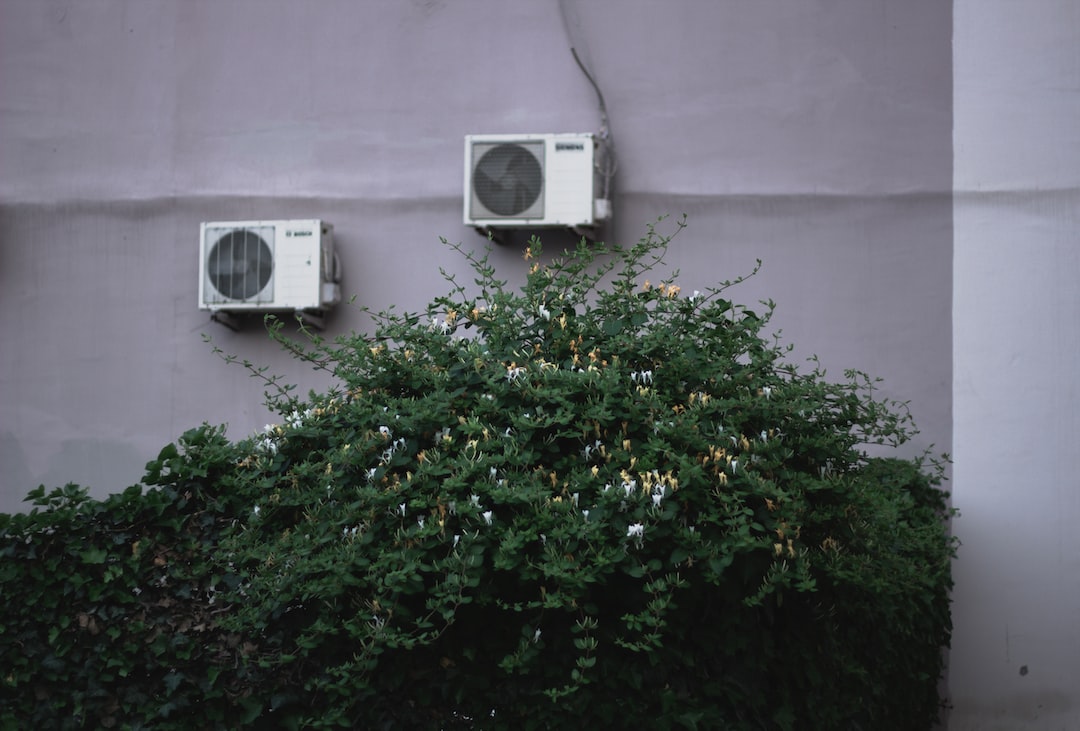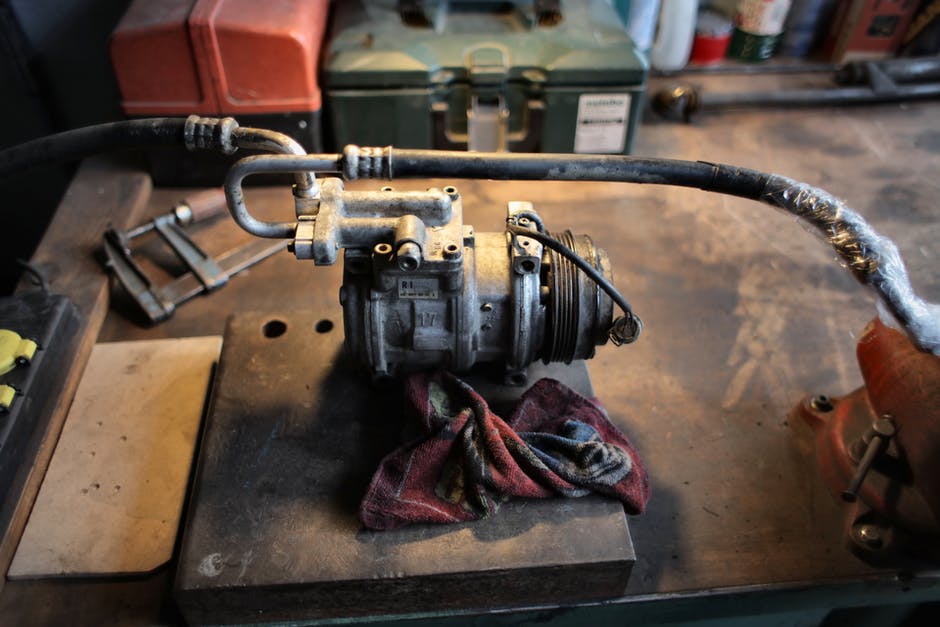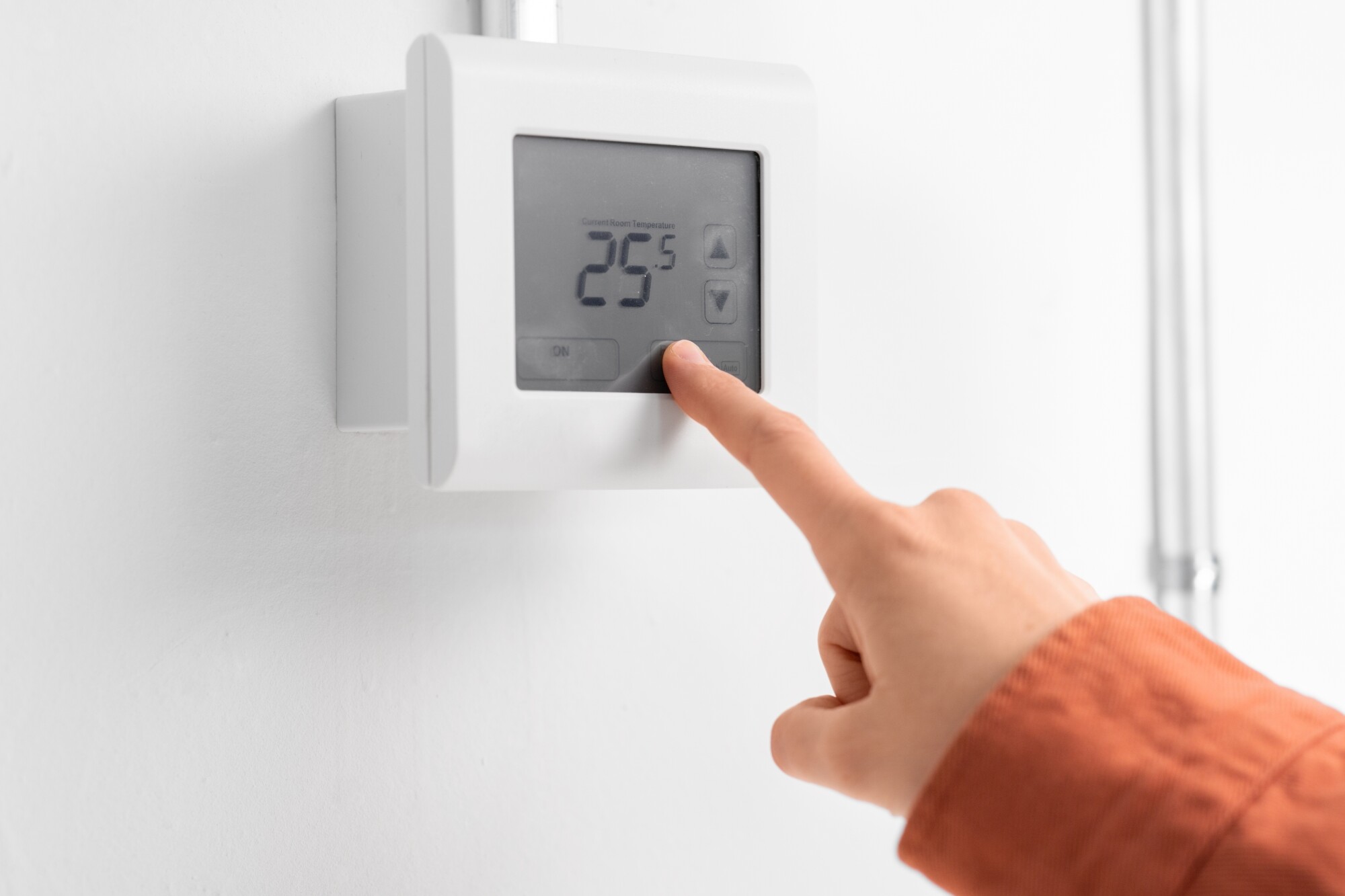The Link Between Indoor Air Quality and Your Health: A Guide for Bellaire, TX Homeowners
For a country that loves the great outdoors, we sure spend a lot of time indoors. Unfortunately, the demands of work, school, and life mean that most Americans spend 90% of their time enclosed by four walls. The problem is that you could be breathing in many invisible pollutants while believing that your air is clean.
In some places, the indoor air quality is much lower than that of the air outside. To protect your health and that of your family, it's important to improve indoor air quality.
Join us as we explore the link between indoor air quality and health and see how Bellaire, TX, AC companies can help.
Indoor Air Quality 101
Indoor air quality refers to the condition of the air we breathe at home, work, school, and other indoor environments. We may think that the air we breathe is regularly exchanged with fresh air from outdoors. But in fact, it may be relatively stagnant and home to lots of nasty pollutants.
Smoke
Whether we can see it or not, we're constantly surrounded by emissions from the burning of fossil fuels and tobacco. If someone in the house smokes, the smoke can cause health complications for others.
According to the CDC, secondhand smoke contains around 7,000 chemicals. About 70 of them can cause cancer. In addition, the smoke hangs around in the air for a considerable period of time after each cigarette is smoked.
Carbon Monoxide
Our furnaces can also cause problems with indoor air quality. It's important to have your furnace serviced regularly and call out an HVAC company immediately if you need furnace repair. If they are not working correctly, they can emit carbon monoxide (CO).
Carbon monoxide is colorless, odorless, and deadly. Every home should have a CO monitor to alert homeowners to any increases in the level of carbon monoxide in the air. If your furnace is leaking this deadly gas, it's time to get a free furnace estimate and install a safer model.
Pet Dander
Many of us can't live without our furry friends, but they can also aggravate allergies and reduce indoor air quality. When some people breathe in pet dander, it causes allergic reactions. HVAC air filters can help to remove these particles from the air, and it's important to change them regularly.
Mold
Winters in Houston, TX, are generally mild and dry. But if you do not control the indoor humidity in your home, mold can start to develop. Mold loves warmth and moisture, and it can sometimes find these conditions in poorly maintained HVAC systems.
Heating and cooling maintenance are essential. It can keep the indoor temperature and humidity at comfortable levels.
Relative indoor humidity of 60% or higher will encourage mold to grow in your home. Scheduling regular AC tune-ups can keep these problems at bay.
Health Impacts of Poor Indoor Air Quality
Poor indoor air quality can affect everyone, not just people who suffer from allergies. If you're a homeowner, it's important to be aware of its impact and what you can do about it.
Allergic Reactions
Pet dander is an inescapable fact when you have cats and dogs in your home. But if anyone in the household has an allergy to pets, they may experience the following:
- Wheezing
- Breathing difficulties
- Sneezing
- Itchy eyes
- Runny nose
- Cough
If your HVAC system is not regularly serviced, you could develop a problem with mold. Mold loves warm, humid conditions. It's easy for mold to build up in your ductwork and then get blown around the house.
Not everyone is sensitive to mold. But at its worst, mold can cause severe reactions, such as fever and breathing difficulties. A study by the Institute of Medicine shed light on this.
The study found a link between indoor exposure to mold and the following conditions in otherwise healthy people:
- Upper respiratory tract problems
- Cough
- Wheezing
Concentration Problems
A report published by the EPA suggested a link between poor indoor air quality and student performance. Naturally, student performance is affected by missing school through sickness. Poor air quality can also cause concentration, calculation, and memory difficulties.
Fatal Conditions
Carbon monoxide is known as the silent killer. If levels become elevated for a short period in your home, it can lead to death. It's very important to keep your furnace well-serviced and have a working carbon monoxide monitor in place at all times.
Who Is at Risk?
Some people are at a higher risk of being affected by poor indoor air quality than others. This includes:
- Elderly people
- Very young children
- Those with cardiovascular or respiratory problems
These groups of people also tend to spend more time indoors.
How to Improve Your Indoor Air Quality
The good news is that improving your air quality doesn't mean moving to another part of the state! All you need to do is follow a few simple steps.
- Regularly change your AC filters
- Schedule regular heating and cooling maintenance, including air duct checks
- Clean evaporator coils, which can attract pests and develop mold
- Consider a UV lamp
- Install an air humidifier
A UV lamp is able to kill living biological organisms in your home. This makes the air cleaner and safer to breathe.
An air humidifier is great in the dry Texas climate. It can help keep the humidity in your home at a safe and comfortable level.
Time to Improve Your Air Quality
You don't have to suffer the effects of poor indoor air quality any longer. AC companies can help you to remove the pollutants from your air so you can breathe easily in your own home.
If you're looking for heating and cooling near me in Bellaire, TX, look no further than P&M HVAC. We have 75 years of experience in keeping the people of the greater Houston area comfortable and safe in their homes.
Our air quality services can remove mold and bacteria from your air and stop them from coming back. Call us at 713-588-6249 or reach out online today to schedule a visit.
When's the Right Time to Get Your Air Conditioning Repairs Done in Houston, TX?
Earlier this summer, Houston broke temperature records. June and July were the hottest months on record, and many homeowners were cranking their AC units to curb the heat.
Now that temperatures are starting to cool down, you may think about switching your air conditioner off and not worrying about it until next summer. Ideally, you should schedule an air conditioning repair before you go to turn it back on.
Avoiding maintenance checks and tune-ups can reduce your air conditioner's longevity. It can also put you more at risk for poor indoor air quality.
Luckily, we have a must-read guide you won't want to miss! In our complete article, we will review the best time of year to get your air conditioner tuned and the most common repairs you can expect. Keep reading for more information!
When Should You Schedule an Air Conditioning Repair?
There are two seasons you should have your HVAC system serviced: spring and fall. Even warmer climates like Texas are prone to weather changes. Typically, air conditioners require more maintenance in the spring and heaters in the fall.
Average temperatures in Houston during the winter hover around 67°F for a high and drop to 50°F for a low. It is unlikely you will need much from your air conditioner during the winter.
However, it is not a bad idea to have your air conditioner checked in the fall before you start shutting it off. Air conditioners have been working hard all summer, and you might avoid more expensive repairs the next year by scheduling biannual checks.
HVAC Service vs. Air Conditioner Repair
Many homeowners are confused about heating and cooling maintenance and how it differs from HVAC repairs. HVAC stands for heating, ventilation, and air conditioning. These units help with humidity and temperature control year-round.
These are becoming more prevalent, and cooler temperatures in the winter can make it worth your while to upgrade to an HVAC system if you live in Houston, Texas. Even upgrading your unit that is ten years or older can save you nearly 20% on your monthly energy bills. When searching for an "AC repair near me," ensure you look at companies specializing in an AC and heating tune-up to cover your home's heating and cooling needs.
Most Common Seasonal Air Conditioner Repairs
Annual or biannual air conditioner maintenance checks can catch several common problems. First, it is essential that you regularly replace air filters. Swapping air filters can help with indoor air quality and reduce strain on your air conditioner.
You will likely need to replace your air filter more frequently than scheduled air conditioner maintenance checks. Aim for replacing your air filter every three months at a minimum.
If you have pets or family members with allergies, you might need to replace them more frequently. Here are some other common air conditioner repairs:
- Air conditioner leaking/AC pan leaking
- Adjusting thermostat
- Improperly working compressor
- Dirty condenser coils
- Blown fuses
Sometimes, all you need is a simple coil cleaning or tune-up. AC companies that specialize in tune-ups will clean fans and coils, replace refrigerant levels, and check your fuses. They can check your thermostat and ensure your unit is functioning properly.
The benefit of performing seasonal tune-ups is you can extend the longevity of your unit, reduce energy bills, and improve your air quality. On average, air conditioners last 12 to 15 years. Properly taking care of your unit can help your air conditioner last longer and avoid costly repairs.
Improving Indoor Air Quality
Seasonal air conditioner checks in the fall and/or spring will also help with indoor air quality. Poorly functioning air conditioner units or dirty fans and coils can raise indoor air quality risks.
Older air conditioner units can also pose risks. Ideally, you should get your air conditioner checked every spring before turning it on. An air conditioner service provider can advise on ways to improve your air quality before it becomes a problem.
Some of the ways you can improve air quality are:
- Using mechanical ventilation
- Add a central air humidifier
- Upgrade your filter
- Use UV lamps
A qualified technician can service your air conditioner, check for any obvious problems, and advise on the best solution. In the fall, it is important you contact your air conditioning provider for a furnace repair to avoid harmful pollutants when heating your house.
How To Find an AC Repair Free Estimate
When searching for "heating and cooling near me," you want a company specialized in HVACs and various air conditioners. Here are some other helpful tips for finding a qualified company that provides free estimates:
- Check online reviews
- Ask family and friends
- Ask about location
- Ask about same-day services and repairs
Ultimately, you want a company that provides transparent pricing, same-day repairs, and vast experience. P&M Air Conditioning and Heating in Houston specializes in several air conditioner brands and offers various services, from repairs to replacements. We also focus on annual maintenance to ensure your air conditioner is up to speed for summer weather.
Schedule Your Next Air Conditioning Repair
If you noticed your air conditioner struggling this summer, it might not be a bad idea to schedule an air conditioning repair this fall. Typically, most annual tune-ups for air conditioners occur in the spring.
This ensures your unit is ready to go for summertime temperatures. If you own an HVAC unit, you might find biannual checks more time-saving since technicians can check your heaters and air conditioners while advising on any pertinent repairs.
For help getting started, contact us and schedule an appointment. We service Houston and the surrounding region and can help you prepare for winter temperatures!
AC Compressor Problems in Friendswood, TX: Top Causes and How We Can Help
In the United States, nearly 90% of households used air conditioning in 2020. An HVAC unit is an essential system for a home and is important for improving the indoor air quality and comfort of your home. However, there are many common problems with an HVAC unit that can keep it from running smoothly. For example, you may have issues with your air conditioner compressor that keeps it from cooling your home during the warmer months.
Do you want to learn more about the top causes of AC compressor failure and how you can solve these problems? Keep reading this guide to understand more about AC compressor problems and to find reliable HVAC professionals to help!
Refrigerant Issues
One of the most common issues homeowners experience with their AC compressors is refrigerant issues. This includes both low refrigerant levels and high refrigerant levels.
If you have low refrigerant in your condenser, you will not be able to keep your home cool. Plus, low refrigerant levels can be a sign that you have a leak in your condenser. If you notice your AC pan leaking, you should get this inspected by a professional HVAC technician.
Air conditioner leaking can be due to corrosion and cracks on your AC coils.
You may also have too much refrigerant in your AC unit. This may be due to low-quality AC companies filling up your refrigerant levels more than they need to be filled.
High levels of refrigerant can put excess pressure on your air conditioner and can cause the compressor to fail.
Electrical Problems
Another reason why your AC compressor may be faulty is if it has electrical problems. Many things can cause electrical failure in AC compressors. These include damaged contractors and wires, fuses that failed, and even power surges.
If there are electrical problems with your AC compressor, this can also lead to acid buildup in your system. Getting an AC and heating tune-up can help you spot these issues before they cause more serious damage.
Dirty Condenser Coils
Next, you may experience issues with your AC compressor if you have dirty condenser coils. When dirt and dust gather on these coils, it makes it harder for your AC to remove hot air from the coils which impact your unit's ability to cool your home.
It can trap heat in the system and increase the pressure on your compressor until it overheats.
If you notice that your AC is constantly running and still having difficulty cooling your home, it is likely an issue with your compressor.
Insufficient Lubrication
Insufficient lubrication is another common HVAC problem that can damage your AC compressor. Your HVAC needs to be oiled for it to function optimally. Otherwise, it will be easier for the parts in the compressor to rub together and increase the wear and tear.
Problems with compressor lubrication can even make some parts come loose in your system.
If you need help preventing this problem, you can contact a company to help with heating and cooling maintenance to service your compressor and check the lubricant levels. They can also repair problems with your HVAC oil pump, which may be what caused these issues in the first place.
Blocked Suction Lines
Having blocked suction lines can also cause serious problems for your air conditioner compressor. Blocks in these lines can make it difficult for refrigerant to run through your air conditioner.
Similarly, damaged suction lines with holes or cracks will lower the flow of refrigerant to your AC compressor and will make it more difficult for your air conditioner to cool your home. Instead, it will have to run for longer and will increase the wear and tear on your system.
Contaminants in the Compressor
Because AC compressors are usually located outside of the home, it can be easy for them to get contaminated with debris and other pollutants. Things like dust, dirt, pets and even bird droppings can get inside your compressor unit and cause a malfunction.
One of the easiest ways to solve this problem is finding a company that offers "maintenance for heating and cooling near me." During their maintenance, they will clean your outdoor AC unit and inspect it for other signs of damage.
Overheated Compressor
Finally, you may have an issue with your AC compressor if it starts to overheat. There are many things that can lead to overheating. For example, poor ventilation can make it difficult for your compressor to regulate its temperature. This can also happen if your outdoor compressor unit deals with constant, direct sunlight.
Other things that can cause your compressor to overheat include poor insulation, low refrigerant, and even dirty coils.
If you have experienced any of these common problems with your air conditioner compressor, you can find a reliable furnace repair and AC repair service to help you get your system running again.
They can also give you a free furnace estimate or a free AC estimate if your compressor needs to be replaced.
Need Help With Air Conditioner Compressor Repair?
There are many things that can go wrong with your air conditioner compressor. Learning more about these common issues can help you prevent them and will make it easier to repair your HVAC system and get it up and running.
If you need help with an AC service in Friendswood, TX, P & M HVAC can help! We offer AC repair services in the Houston area and can help you keep your home comfortable.
Contact our HVAC professionals to get an AC repair free estimate and to get help with heating near me.
AC Repair for Friendswood, TX Homeowners: Why Won’t My AC Turn On?
As of 2020, almost 90% of homes in the US used air conditioning, and when you're in the hot summer sun of Texas, you want your air conditioning to be working the way it should be.
If your AC won't turn on, sometimes, it's a quick fix that you can handle at home, so you'll need to know what to check for. But other times, you'll come across a problem you can't fix on your own. In these cases, you'll need to know when you should call in a professional air conditioning service to help you.
To learn more, keep reading this guide to learn five reasons why your AC won't turn on and what you can do to fix the problem!
1. Clogged Air Filter
If you don't remember the last time you changed your air filter, you'll need to check this first. This is a common AC maintenance task that many people forget to complete.
Air filters can get clogged up with debris and dust, which blocks the airflow causing the coils in your AC to freeze and form ice. This causes your AC to stop cooling your home completely, and if your AC is frozen enough, it won't turn on at all.
Eventually, your AC will not be able to draw air, which causes it to heat up and melt the ice on the coils. In this case, you might also notice that your air conditioner is leaking.
You'll need to make sure to change your air filter every 90 days. In addition, you should change your air filter every 30 to 45 days if you have allergies or pets in your home to improve your indoor air quality.
2. Thermostat Problems
Your thermostat is essentially the main communicator to your air conditioner, so if it's not working correctly, your AC won't sense when to switch on properly.
You'll first need to look at your thermostat's screen. If it's off or no numbers are displaying, then try to switch it on. If it doesn't switch on, your next step will be to replace the batteries.
You may need a new thermostat if it still doesn't switch on after you replace the batteries. Your next step should be to call a professional technician to come and evaluate the problem. Professional AC companies will be able to determine if it's an electrical issue or something else and fix the problem immediately.
3. Clogged Condensate Line
Air is either cooled or heated through your HVAC system, and the humidity gets released. The humidity will eventually turn into condensation, which then drains through your condensate line.
The condensate line is also in an enclosed damp space, so it's susceptible to mold and mildew. If you don't flush your condensate regularly, it can become clogged, and eventually, your AC won't turn on.
To troubleshoot, you'll first need to turn your AC off from both the breaker panel and thermostat. Then, you'll need to go outside to find the PVC pipe that's closest to the outer part of your air conditioner. Remove the cap, pour a cup of distilled white vinegar into the pipe, and let it sit for an hour before flushing with water. You should repeat this process once a month.
If you don't feel comfortable doing this, you should Google "AC repair near me" and call in the professionals to ensure it's fixed properly.
4. Refrigerant Leak
If you know what to look for, you'll be able to detect a refrigerant leak before your AC won't turn on. You'll notice that while your AC is running, it's not cooling your home effectively. You'll also notice your AC bills going up for no reason, a hissing sound from your AC, or warm air coming from your vents.
The freon in your AC is an odorless and tasteless gas that can cause reduce the oxygen levels in your lungs and can lead to refrigerant poisoning. Therefore, if you suspect a refrigerant leak, it's essential to take it seriously and take action immediately.
Due to the dangers, the Environmental Protection Agency only allows certified technicians to handle these types of refrigerant problems. So, you'll need to call a licensed HVAC professional to come and fix the issue.
5. Blown Fuse
Frequently, a blown fuse is the reason your AC won't turn on, so it's something you'll need to remember to check when you're troubleshooting. Your first step is to ensure you turn off your air conditioner and power supply to avoid electrocution.
Next, locate the fuse box and pull out the fuses for your AC. You'll need to do what's known as a continuity test using a multimeter. A multimeter is a small handheld device that measures electrical voltage, and you can find them at most home retail stores.
If you find that a fuse isn't working, you can purchase a new one at your local hardware store. You'll need to ensure you get the model and make of the fuse or take a picture of it to have with you.
If you're not comfortable doing this, it's best to call an AC repair service to help you fix the problem.
Call a Professional AC and Heating Service When Your AC Won't Turn On
Now that you know the most common reasons why your AC won't turn on, you'll more easily be able to do some troubleshooting at home first.
If you don't feel comfortable working on AC equipment you're not familiar with, look up "heating and cooling near me" on Google until you come across P & M Air Conditioning and Heating.
We offer AC and heating services, heating and cooling maintenance, air quality checks, and installation services. We're a family-owned business with over 65 years of experience, and our service areas include Houston, Bellaire, Pearland, West University, and Friendswood, TX.
We're available 24/7, so make sure you contact us today to schedule an appointment!




